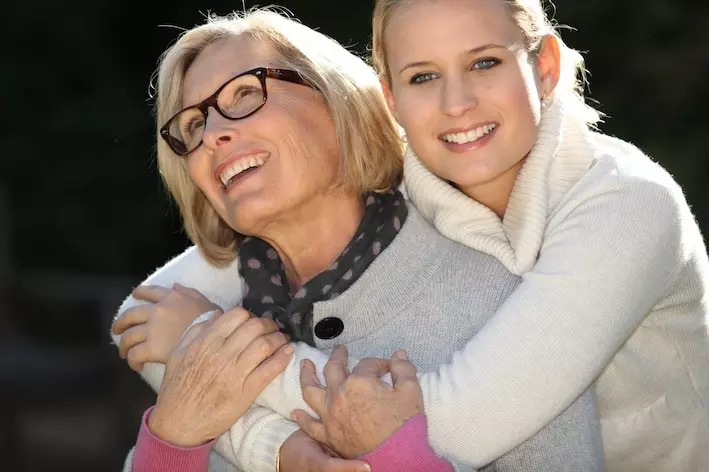
Cancer is a leading cause of death among women in Australia. It is estimated that the risk of a woman being diagnosed with cancer by their 85th birthday will be 1 in 2 (50%). In 2017, approximately 62,005 Australian women are expected to be diagnosed with cancer.
These are alarming statistics. But they’re not without hope – cancer survival rates have improved over the years.
Here at Hunter Valley Oncology, I, Dr Rob Paterson, have put together a list of common cancers affecting Australian women today. Read on to find out how to reduce your cancer risk.
Breast Cancer
Breast cancer is the most commonly diagnosed cancer among women, and the second most common cancer to cause death. It’s estimated that around 17,000 Australian women will be diagnosed in 2017.
Different factors such as age, family history, and lifestyle choices influence your risk for developing breast cancer. There is a greater chance of successful treatment and recovery when breast cancer is detected early.
What can you do:
All women should learn how their breasts feel and change at different times to understand what is normal for them. Check your breasts often, and seek medical advice if you notice any of the following unusual changes:
- Puckering, dimpling or red patches on the skin
- Lumps or thickening in your breast or armpit
- Changes to the nipple including discharge, inversion or itchiness
- Persistent breast pain
Women over 50 are advised to have a mammogram every two years. If you are younger than 50 but have a strong family history of breast cancer, discuss your options with your GP.
COLON CANCER
Most colon cancers (bowel or rectum) are found in people over 50. It is estimated that this type of cancer will become the 2nd most commonly diagnosed cancer in 2017, with 1 in 15 Australian women expected to be diagnosed by the time they turn 85.
What can you do:
Maintaining a healthy weight, being physically active, eating a nourishing diet, and avoiding alcohol are all steps women can take to reduce their risk of colon cancer.
Like many cancers, this cancer is more successfully treated if detected early. It is recommended that women over 50 be screened every two years.
See your GP if you experience any of the following:
- Blood in your stool after a bowel motion
- Bleeding from your rectum
- Abdominal bloating or persistent pain
- Unexplained weight loss
LUNG CANCER
Lung cancer is the fifth most common cancer in Australia, but causes the most deaths. This type of cancer is largely preventable; in fact most lung cancer deaths are believed to be due to smoking.
WHAT YOU CAN DO:
Putting it plainly: Don’t smoke. If you do smoke, quit. Avoid second hand smoke wherever possible.
If you currently smoke, quitting will have immediate health benefits including improved lung health. A number of services are available to help smokers beat the habit, including Quitline and Quit.org.au.
CERVICAL CANCER
HPV (Human Papillomavirus), usually transmitted during intercourse, is responsible for nearly all cervical cancers. Thanks to the National Cervical Screening Program, deaths from this cancer have reduced due to early detection.
A renewed Cervical Screening Program will be rolled out in Australia beginning 1st December 2017, with the 2 yearly Pap smear being replaced with a 5 yearly Cervical Screening Test for HPV.
After 1st December 2017, women aged from 25-69 will be invited to participate in the new program by the National Cancer Screening Register.
WHAT YOU CAN DO:
- Continue to have regular Pap smears every 2 years until 1st December 2017
- Join the National Cancer Screening Register and keep up to date with your Cervical Screening Tests every 5 years
- Consider getting the HPV vaccine
- Seek medical advice if you’re having irregular bleeding or discomfort
OVARIAN CANCER
More likely to occur in older women, Ovarian cancer is the sixth most common cause of cancer death among women in Australia. Women with a family history of ovarian or breast cancer may have an increased risk.
Unfortunately, there is currently no screening available for ovarian cancer in Australia. As such, it’s important to seek medical advice if you notice any of the following symptoms:
- Frequent urination
- Recurring constipation
- Menstrual changes or irregularities
- Indigestion or abdominal bloating
- Abdominal, back pain or pelvic pain
- Pain during sexual intercourse
HOW TO REDUCE YOUR CANCER RISK
Give yourself the best chance of avoiding a cancer diagnosis by maintaining a healthy lifestyle. I, Dr Rob Paterson, advise my patients at Hunter Valley Oncology to:
- Avoid alcohol or limit intake to no more than 2 standard drinks per day
- Don’t smoke, and try not to breathe in second hand smoke
- Maintain a healthy weight
- Move your body with regular physical activity
- Eat plenty of fruits and vegetables in a balanced diet
- Get checked and screened for cancer regularly
WHERE TO GET FURTHER ADVICE
At Hunter Valley Oncology, we recommend you seek advice if you notice a change in your body or have a strong family history of cancer.
Our patient-centred, holistic Oncology service fulfils the needs of patients in Newcastle NSW and surrounds. To make an appointment to see myself or one of our Oncologists, please call (02) 4941 8424 or (02) 4942 2600 or use our online contact form.
